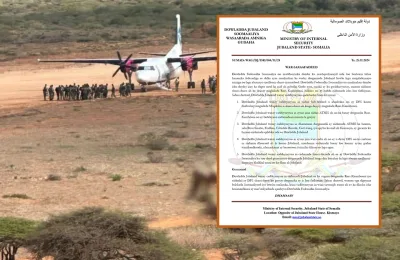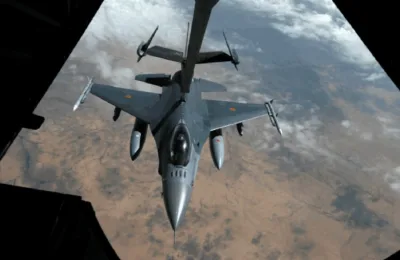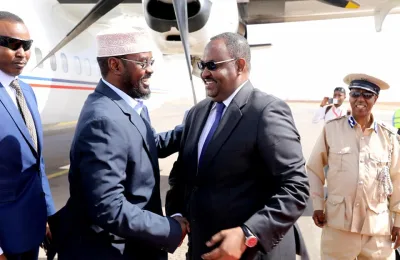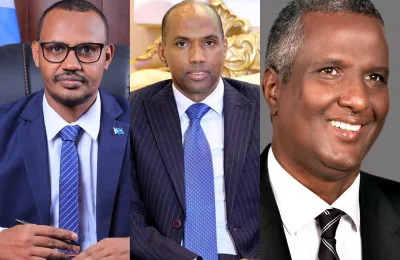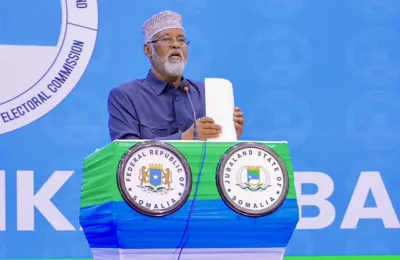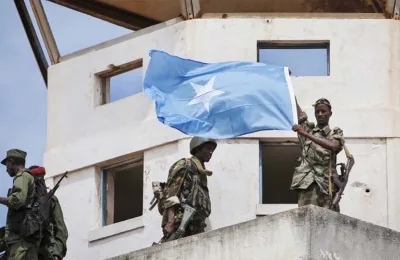Turkish medical rescue team headed to Somalia’s capital early Tuesday to bring people injured in a…
Turkish medical rescue team headed to Somalia’s capital early Tuesday to bring people injured in a recent suicide attack to Turkey for treatment.
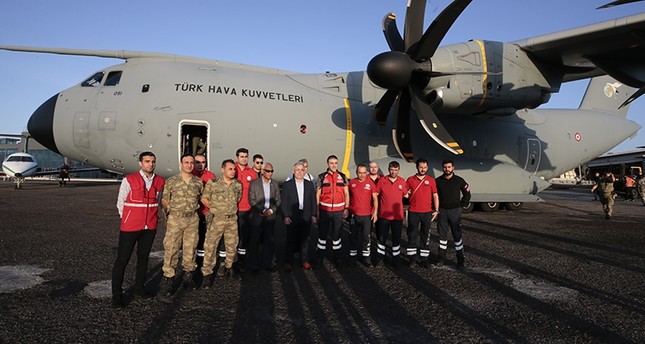
At least three people were killed and 20 others injured, including several Turkish nationals, when a suicide car bomb targeted a police convoy escorting Turkish contractors in Mogadishu on Saturday.
National Medical Rescue Team of nine people traveled on an A400M type military transport aircraft of the Turkish Armed Forces to treat three Turkish citizens and six Somalians.
Semih Korkut, an official from the Ministry of Health, told Anadolu Agency that preparations were made to bring back those injured in the attack on the instructions of President Recep Tayyip Erdoğan.
On Dec. 28, at least 85 people were killed, including two Turkish nationals, and over 150 others wounded in a suicide truck attack in Mogadishu claimed by the al-Shabaab terrorist group.
Turkey, under the ruling Justice and Development Party (AK Party) government, launched a continental initiative to reach out to African countries whose relations with Turkey have been mostly limited since the early years of the Republic of Turkey.
Turkey’s vast aid effort at the height of the 2011 famine endeared it to many Somali people, and it has continued to pour in aid, much of it from private companies.
It has built schools, hospitals and infrastructure and has provided Somalis with scholarships to study in Turkey. President Erdoğan has visited Mogadishu twice since his first visit to the war-ravaged country in 2011. He was the first non-African leader to visit the war-ravaged country in 20 years.
Turkey’s official humanitarian institutions, such as TİKA, the Turkish Red Crescent Kızılay and Diyanet Foundation along with civil initiatives such as the Humanitarian Relief Foundation (IHH) and Helping Hands, have implemented many development aid projects relating to infrastructure, education, health and related fields. For instance, TİKA financed projects in Mogadishu that included rehabilitating the Digfer Hospital, constructing 33 kilometers of roads and building the Somalian Statehouse.
Rapidly growing trade between the two nations has followed. In 2010, Turkish exports to Somalia totaled just $5.1 million. In five years, this figure ballooned to $123 million. In the space of a few years, Turkey has gone from Somalia’s 20th-largest source of imports to its fifth-largest.
Relations between Turkey and Somalia date back to the 16th century. At the time, the Ottoman Empire sought to prevent Somalia from becoming a Portuguese colony. In the wake of the 16th century, Somalia was ruled by local elements of the Ottoman Empire, following the empire’s demise, by Western colonial powers. During this period, the Ottoman presence in Berbera, just like the presence of the military training center in Somalia today, was the guarantee of peace in the region.
Contemporary Turkish and Somalian relations began with the opening of embassies in 1979, although Turkey’s embassy was closed in 1992 due to the civil war in Somalia. In the following years, Turkey was not indifferent to Somalia’s internal problems and joined the United Nations Operation in Somalia with an army under the control of Gen. Çevik Bir. During the civil war, some Turkish civil initiatives also provided assistance through their local partners.
During the transitional government in Somalia, official bilateral relations remained limited. Following this period, then-Prime Minister Erdoğan and the late President Abdullahi Yusuf met on Jan. 29-30, 2012, at the African Union summit meeting in Addis Ababa. At this meeting, Prime Minister Erdoğan asked the Somali president to send a delegation to Ankara to present Somalia’s needs.
Source:dailysabah


